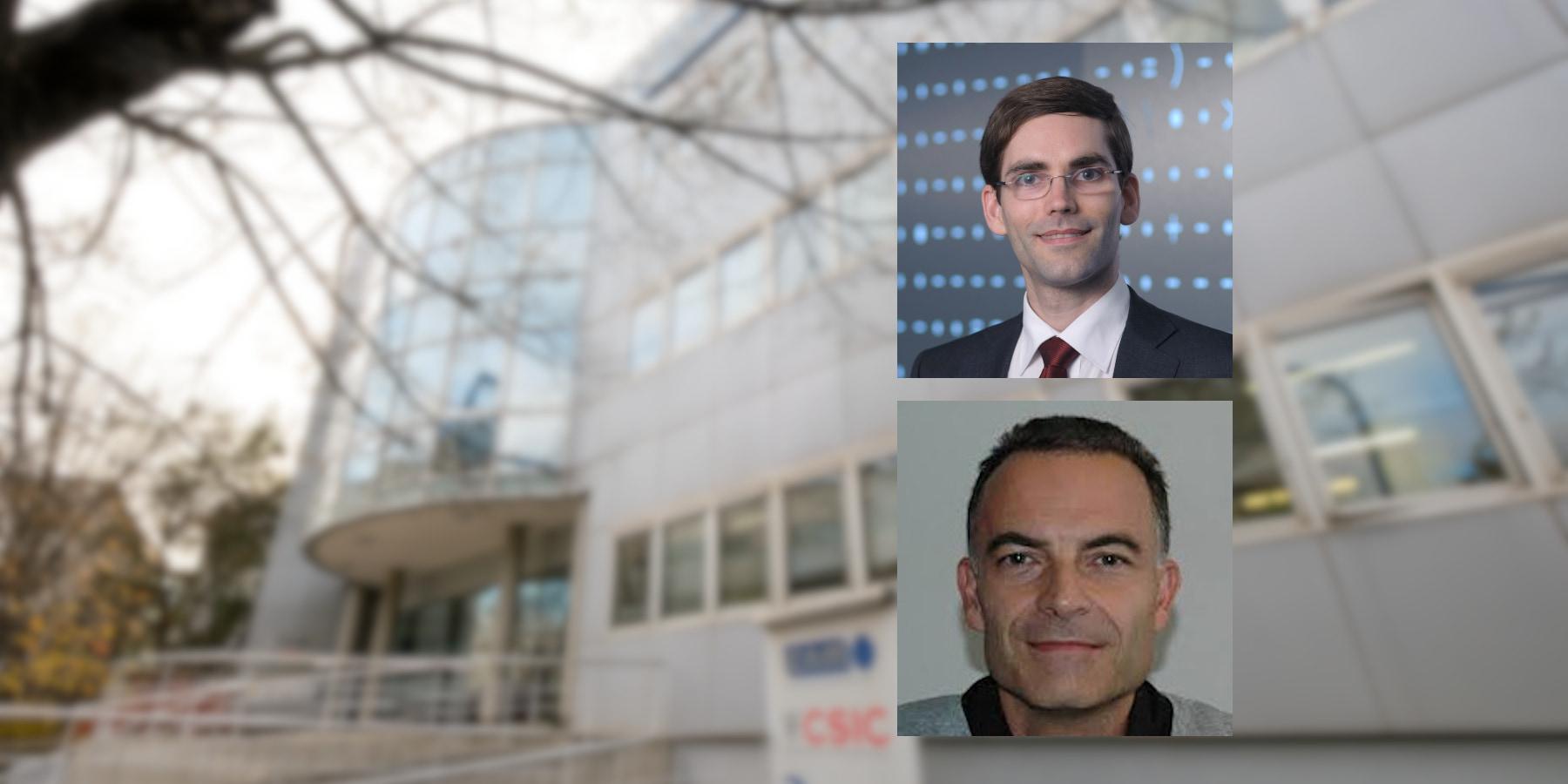Researchers Tomás Palacios and Christian Bergaud join IMB-CNM's Scientific Advisory Board
CSIC appoints Palacios, professor and lecturer at MIT, and Bergaud, researcher at the French LAAS-CNRS, as new members to supervise and advise on the scientific activity of the Institute of Microelectronics in Barcelona; replacing Elvira Fortunato, current Portuguese Minister of Science, and Florin Udrea, from the University of Cambridge.

Professor Tomás Palacios, from the prestigious Massachusetts Institute of Technology (MIT) in the United States, and researcher Christian Bergaud, from the French Laboratory of Systems Analysis and Architecture (LAAS-CNRS), have joined the Scientific Advisory Board of the Institute of Microelectronics of Barcelona (IMB-CNM-CSIC). Both complete a panel of eight professionals who periodically supervise and advise on the IMB-CNM's activities in order to make proposals for improvement.
The external body appointed by the CSIC Presidency to provide scientific advice to the IMB-CNM is made up of researchers from top-level international research centers, universities and companies working in areas related to the institute's R&D&I lines. It is a multidisciplinary and peer-to-peer team, with an outstanding international representation.
"In today's environment of open and collaborative science, especially in a field as cross-cutting and multidisciplinary as micro- and nanoelectronics, it is essential to have external advice and consequent constructive criticism," says Luis Fonseca, director of IMB-CNM. "Having access to the informed opinion of prestigious people is of great help in guiding our scientific activity, as is knowing and sharing the good organizational practices of the different institutions to which they belong."
The new profiles bring two different perspectives to the board. Palacios is a professor of electrical engineering at MIT, director of the MIT Microsystems Technologies Laboratory and associate director of the new SUPeRior Energy-efficient Materials and dEvices (SUPREME) Center, a research center that will bring together scientists from nine different institutions of higher education. He has also recently been named the Clarence J. LeBel Professor of Electrical and Computer Engineering at MIT, a recognition of his innovative career, his teaching and mentoring, as well as his contributions to MIT. He is an international reference in wide bandgap semiconductors, 2D materials, power electronics and advanced semiconductors (such as gallium nitride).
Bergaud, who works at the LAAS in Toulouse, conducts research in the fields of mechanical and electronic engineering, focusing on functional materials and polymer technologies for flexible sensors and implantable devices. He directs the MEMS laboratory at the same center. He has led several French initiatives related to micro- and nanoelectronics, such as one of the presidencies of the National Committee for Scientific Research and the leadership of the National Research Group on Micro-Nanosystems.
The new members replace a minister and a Cambridge professor
The two researchers step in to fill the vacancies left by Elvira Fortunato and Florin Udrea. Fortunato is Portugal's current Minister of Science, Technology and Higher Education and is an eminent expert in transparent electronics and new sustainable materials. She is the author of the first paper transistor in 2008, which used a flexible biopolymer as an insulating layer.
Udrea is a professor of semiconductor engineering and director of the High Voltage Sensors and Microelectronics Laboratory at the University of Cambridge. He is also the founder of five technology-based companies that have won a multitude of awards or have been sold to large companies, such as Camsemi, which was acquired by Power Integrations after the sale of one billion power integrated circuits; or Cambridge GaN Device, which develops high-voltage technology with gallium nitride, a very promising new material, and is considered one of the most interesting growing companies by the Cambridge Cluster.
The new members join Sabino Azcárate, from the Basque technology center Tekniker, with a complementary activity to IMB-CNM; Wolfgang Dettmann, from the German semiconductor company Infineon, one of the only European companies in microelectronics; Haixia Zhang, professor at Peking University (China) and international expert in micro and nanotechnologies; Janny van Den Eijnden Van Raaij, director of the Dutch HdMT institute and expert in Organ on a Chip technologies; Sabeth Verpoorte, from the Dutch University of Groningen and a pioneer in Lab-on-a-chip; and Maud Vinet, who, after a long career at the French CEA-LETI where she was head of the Advanced CMOS Laboratory, is co-founder and CEO of the start-up Quobly dedicated to quantum computing based on semiconductor technology.




